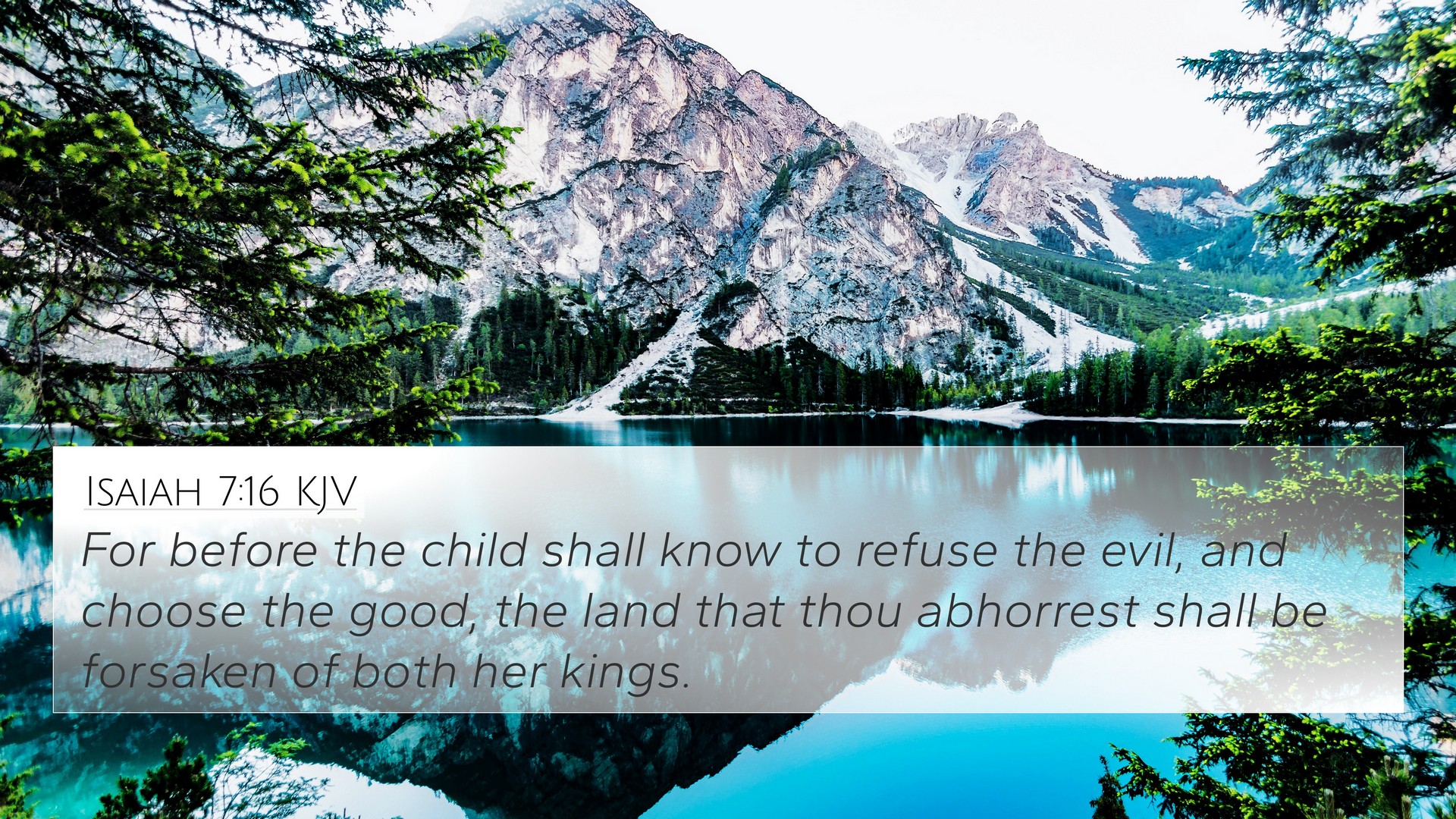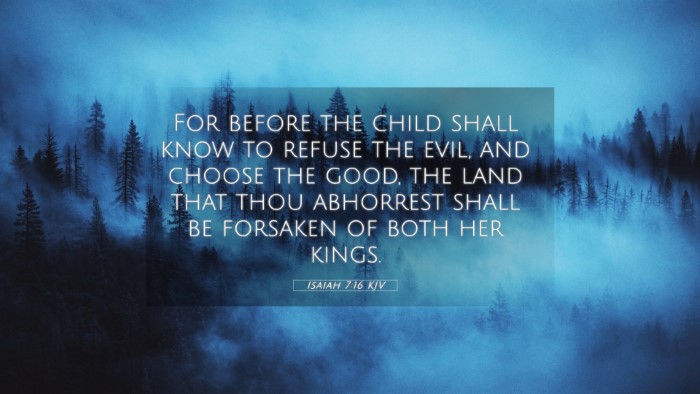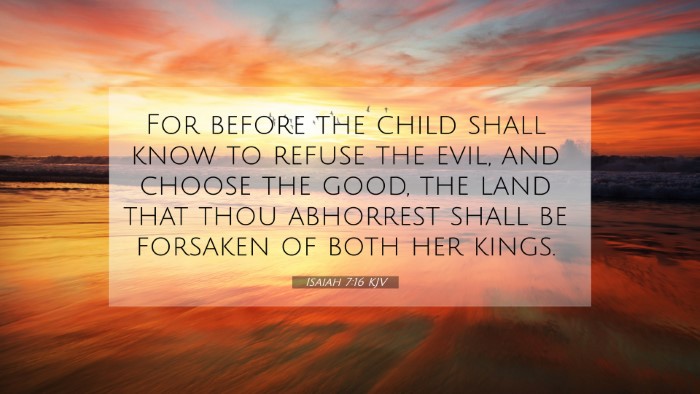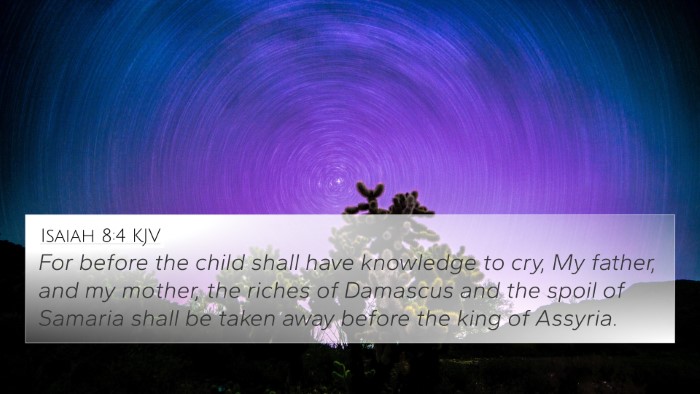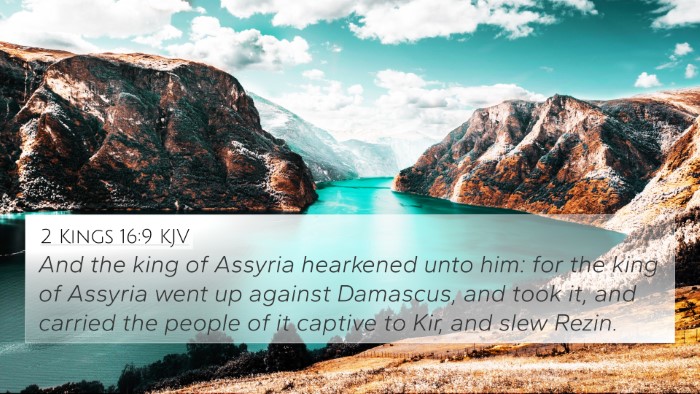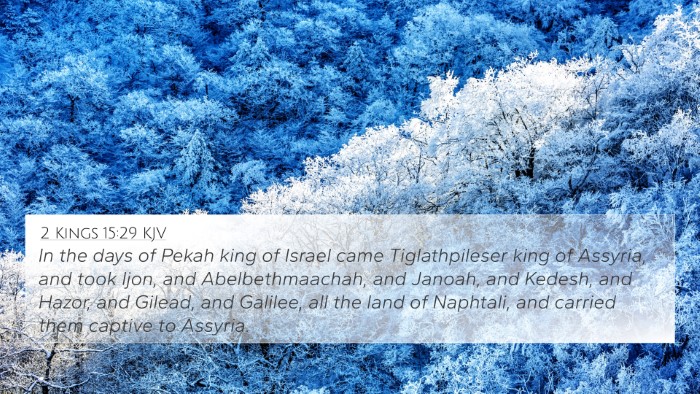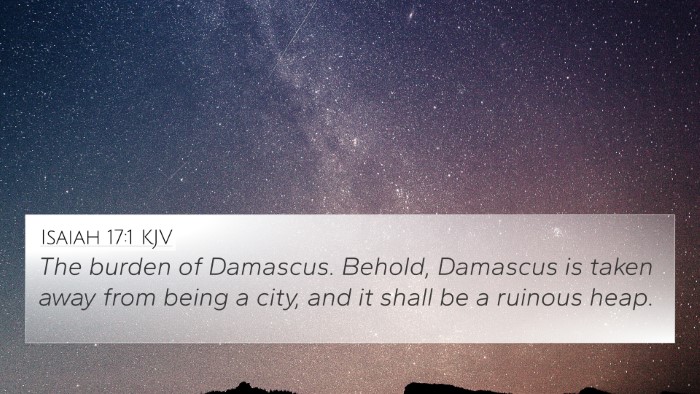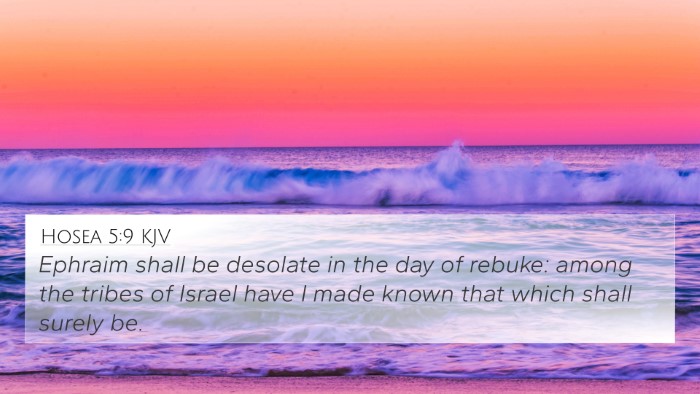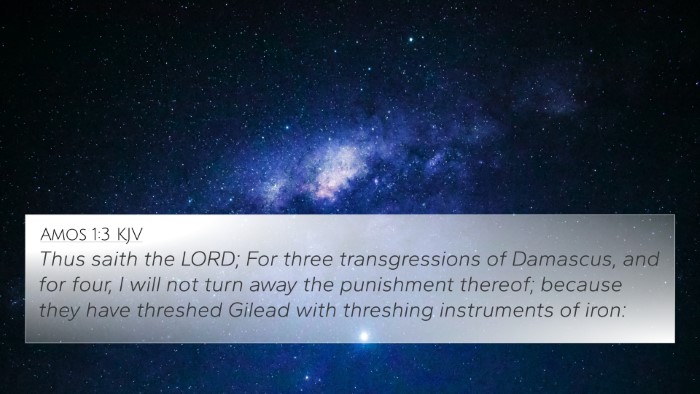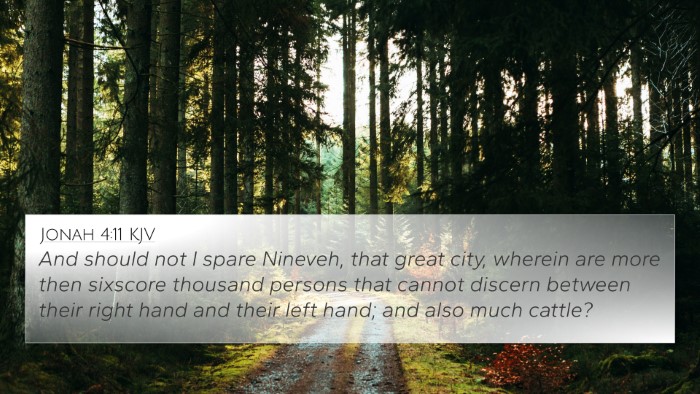Understanding Isaiah 7:16
The verse Isaiah 7:16 states: "For before the child shall know to refuse the evil and choose the good, the land that thou abhorrest shall be forsaken of both her kings."
Meaning and Insights
This verse carries significant meaning regarding the prophecy of the coming judgment upon Israel and the assurance of God's presence amid imminent threats. It emphasizes the period during which a specific child, likely symbolic, will come of age to discern right from wrong, indicating a shift in the political and spiritual landscape.
Commentators like Matthew Henry stress that this child’s knowledge represents more than just maturity; it speaks to the age of accountability, highlighting divine providence where God fulfills His promises even in crises. In this context, the child symbolizes hope amid turmoil.
Albert Barnes expands on this by suggesting the verse illustrates not just the immediate historical circumstances but also a larger prophetic theme. The 'child' could be referring to Immanuel, representing God's ultimate deliverance for His people, indicating a pivotal moment for Judah when they felt abandoned amidst their enemies.
Adam Clarke provides a practical view, interpreting that this verse reflects on the moral choices we make. The knowledge of good and evil is critical; it is not just about knowing right from wrong, but choosing the right path in a world filled with distractions and moral decay.
Cross-References and Thematic Connections
Isaiah 7:16 can be linked to several other biblical texts, enhancing our understanding through cross-referencing Biblical texts. Here are some related verses:
- Isaiah 8:4 - Discusses a similar timeline concerning the Assyrian invasion, reinforcing transitory judgments.
- Matthew 1:23 - Relates to the prophecy of Emmanuel, capturing the essence of God's presence with His people.
- Luke 2:40 - Refers to the growth of Jesus, aligning with the themes of knowledge and maturity.
- Hebrews 5:14 - Addresses discernment between good and evil, relevant to the choices referenced in Isaiah 7:16.
- Proverbs 22:6 - Highlights the importance of guiding a child’s moral development, akin to the implications of the 'child' in Isaiah.
- Isaiah 9:6 - Profoundly relates to the coming of a child that governs, depicting future hope beyond immediate judgments.
- 1 Corinthians 13:11 - Discusses spiritual maturity, drawing parallels between childish ignorance and responsible adulthood.
- James 4:17 - Encapsulates the theme of knowing good versus evil, emphasizing accountability in choices.
- Jeremiah 1:7-8 - Encourages the idea of young prophets, extending the imagery of divine providence in youth and during perilous times.
- Psalm 127:3 - Reflects on children as blessings, connecting the themes of hope and divine favor in challenging times.
Tools for Bible Cross-Referencing
Using a Bible concordance or a Bible cross-reference guide can enhance your study by highlighting verse connections. These tools contribute significantly to understanding the thematic Bible verse connections, enabling richer insights through a cross-reference Bible study.
Conclusion
Isaiah 7:16 serves as a profound reminder of God's sovereignty amid uncertainty. By exploring the connections and cross-references with other scriptures, we gain depth in understanding this verse's implications for both historical Israel and contemporary believers. Emphasizing moral discernment and divine fulfillment, this verse encourages us to reflect on our choices and the hope present in God's promises.
